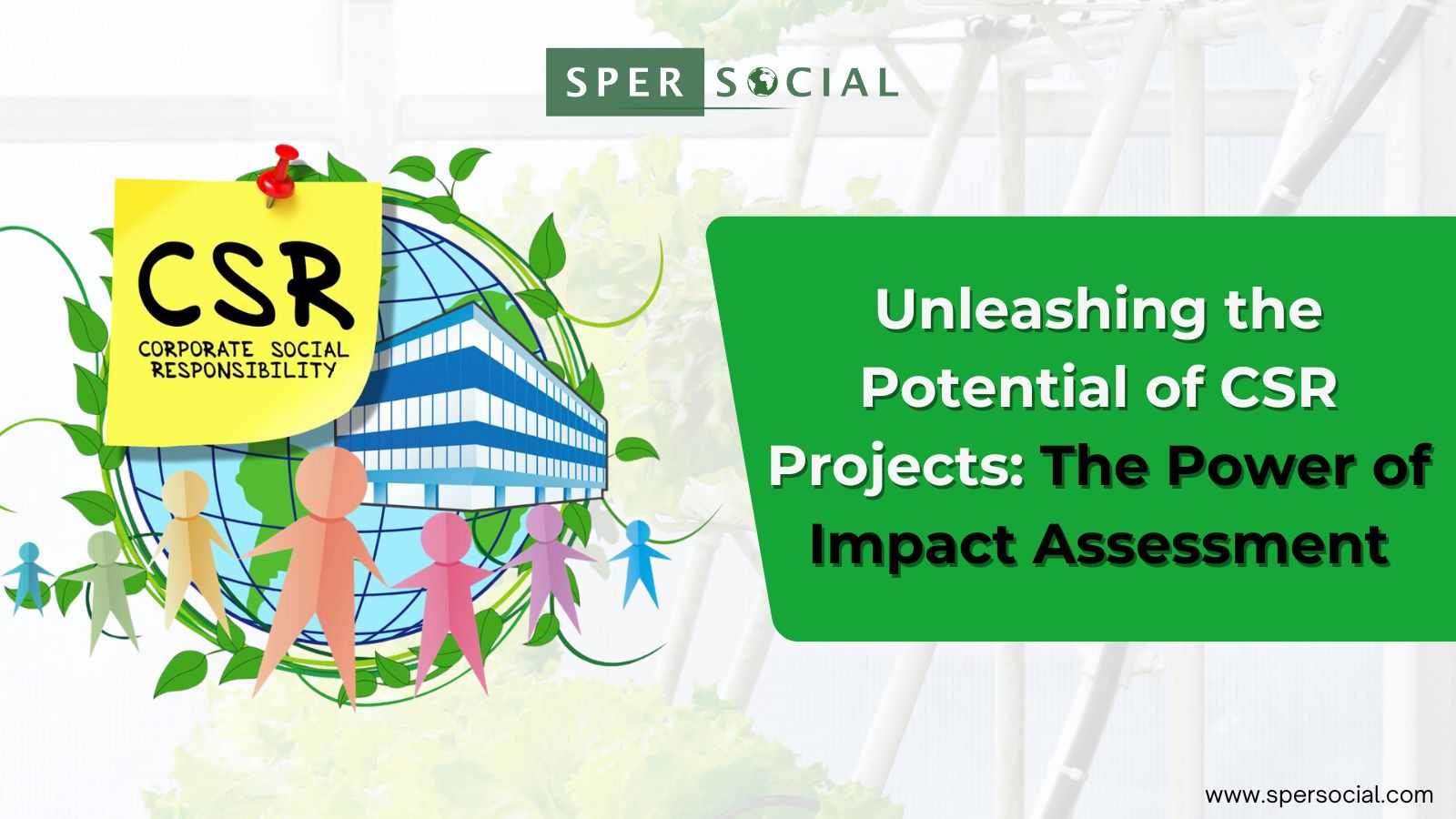
Introduction
Corporate Social Responsibility (CSR) isn't just a buzzword anymore; it's a fundamental aspect of modern business. Companies around the world are recognizing that they have a duty not only to their shareholders but also to the communities and environments they affect. CSR initiatives can range from environmental sustainability projects to social equity programs. But how do companies know if these initiatives are truly making a difference? That's where impact assessment comes in.
Understanding Impact Assessment
Impact assessment is a process used to understand the effects of a CSR project on its intended targets. It involves evaluating the outcomes and identifying whether the project goals are being met. Essentially, it measures the value and impact of CSR activities, providing crucial insights into their effectiveness.
Key Components of an Impact Assessment
- Objectives and Scope: Clearly defining what the assessment aims to achieve.
- Data Collection: Gathering information through various methods.
- Data Analysis: Interpreting the collected data to draw meaningful conclusions.
- Reporting: Presenting the findings in a comprehensible and actionable format.
The Importance of Impact Assessment in CSR
- Measuring Effectiveness An impact assessment helps in determining whether a CSR project is achieving its goals. By measuring the effectiveness, companies can identify what’s working and what’s not, allowing them to make necessary adjustments.
- Enhancing Transparency and Accountability When companies conduct thorough impact assessments, they demonstrate transparency and accountability. This not only builds trust with stakeholders but also strengthens the company's reputation.
- Genetic Enhancements Genetic modifications and biotechnological advances have led to the development of crops that are more resistant to pests, diseases, and climate extremes. These innovations ensure food security and stable incomes for farmers.
- Guiding Future CSR Initiatives Impact assessments provide valuable data that can guide future CSR projects. They highlight successful strategies and areas that need improvement, ensuring that future initiatives are more effective and aligned with company goals.
Steps to Conduct an Impact Assessment
- Identifying Objectives and Scope Start by defining the goals of your impact assessment. What do you want to achieve? What are the key metrics you will measure? Clearly outlining the objectives will provide direction for the entire process.
- Collecting Data Gather data using various methods such as surveys, interviews, and observation. Ensure that the data collection process is systematic and unbiased to get accurate results.
- Analyzing Data Analyze the collected data to identify trends, patterns, and outcomes. Use statistical tools and software to make sense of the data and draw meaningful conclusions.
- Reporting Findings Once the data is analyzed, compile your findings into a comprehensive report. Present the information in a clear and concise manner, highlighting key insights and recommendations.
Case Studies of Successful Impact Assessments
- Example 1: Environmental CSR Project A company implemented a recycling program aimed at reducing waste. Through impact assessment, they measured the reduction in waste, increased recycling rates, and positive feedback from the community, leading to an expansion of the program.
- Example 2: Social CSR Project An organization launched an education initiative for underprivileged children. The impact assessment showed improved literacy rates and school attendance, helping secure further funding and support for the program.
- Example 3: Economic CSR Project A corporation started a local business support program. The impact assessment revealed increased local employment and business growth, demonstrating the program's success and justifying its continuation.
Challenges in Conducting Impact Assessments
- Data Collection Difficulties Collecting accurate and reliable data can be challenging, especially in areas with limited access or where stakeholders are reluctant to participate.
- Resource Constraints Impact assessments can be resource-intensive, requiring time, money, and skilled personnel. Smaller companies might struggle with these demands.
- Stakeholder Engagement Engaging stakeholders throughout the process can be difficult but is essential for gathering comprehensive data and ensuring the success of the assessment.
Overcoming Challenges in Impact Assessment
- Leveraging Technology Use technology to streamline data collection and analysis. Digital tools can make the process more efficient and cost-effective.
- Building Strong Partnerships Collaborate with other organizations, NGOs, and governments to share resources and expertise, enhancing the quality and reach of the impact assessment.
- Continuous Learning and Adaptation Learn from each impact assessment and adapt your methods accordingly. Continuous improvement is key to conducting effective assessments.
Future Trends in CSR Impact Assessment
- Digitalization and Big Data The use of big data and digital tools will continue to grow, providing more precise and comprehensive impact assessments.
- Integration of Sustainability Metrics Future assessments will increasingly incorporate sustainability metrics, ensuring that CSR projects align with broader environmental and social goals.
- Focus on Long-Term Impacts There will be a shift towards assessing the long-term impacts of CSR projects, rather than just immediate outcomes, providing a more accurate picture of their effectiveness.
Conclusion
Impact assessment is a powerful tool for unlocking the potential of CSR projects. By measuring effectiveness, enhancing transparency, and guiding future initiatives, companies can ensure their CSR efforts make a meaningful difference. Embrace the process of impact assessment and watch your CSR projects transform from good intentions to impactful actions.
SPER SOCIAL
SPER SOCIAL, your premier destination for innovative solutions in Corporate Social Responsibility (CSR) and Environmental, Social, and Governance (ESG) initiatives. At SPER SOCIAL, we pride ourselves on our expertise, tailored solutions, global perspective, and commitment to long-term impact. With a passion for sustainability and a dedication to making a difference, we empower organizations to navigate the complexities of CSR and ESG with confidence and purpose.
#303-304, Tower B, Noida One, Sector 62, Noida, India
contact@spersocial.com
+1-347-460-2899
+91-959-915-8047
